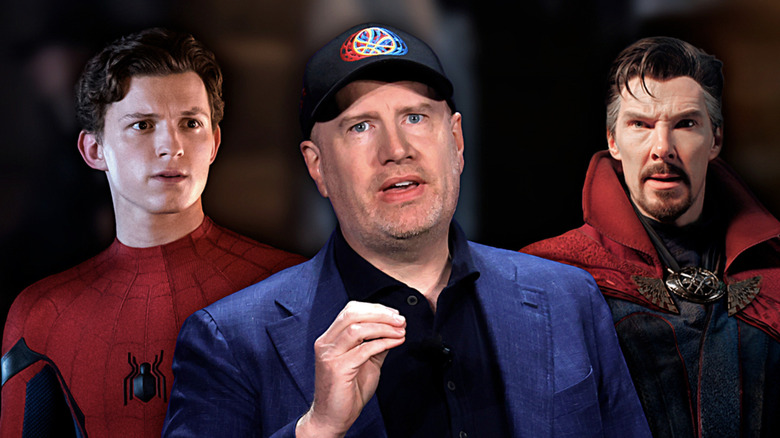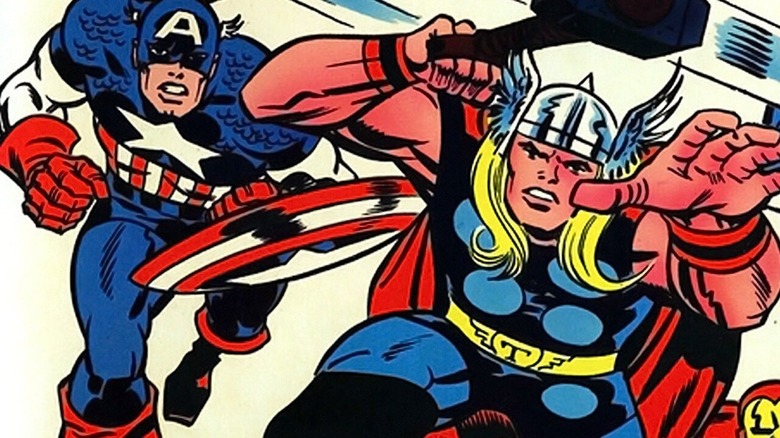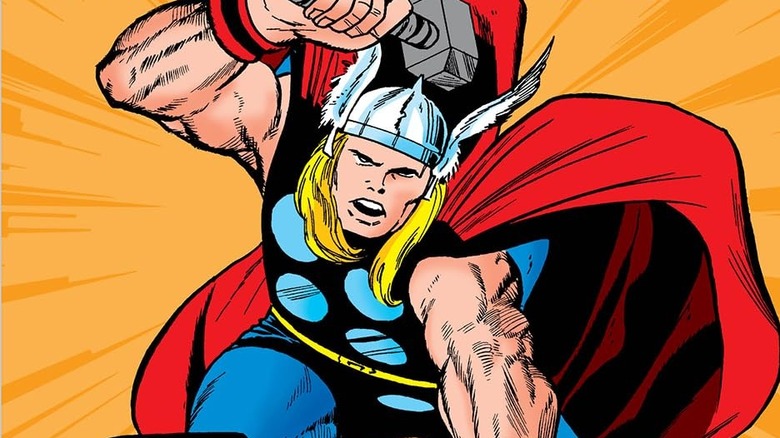Marvel's Avengers Copyright Lawsuit (And Its Outcome) Explained
In 2021, comic book artist Larry Lieber and the estates of Gene Colan, Steve Ditko, Don Heck, and Don Rico filed notices to terminate Marvel Characters, Inc.'s copyrights to characters they created, including Ant-Man, Black Widow, Blade, Captain Marvel, Doctor Strange, Falcon, Hawkeye, Iron Man, Spider-Man, Thor, and the Wizard (via Reuters). In response, Marvel filed lawsuits against all parties, claiming that "these were works made for hire," to which the Copyright Act does not apply, and that it therefore owns them in perpetuity.
In June, all the lawsuits were settled except for Ditko's (via Reuters), which was finally "amicably resolved" in December, though details have not been released to the public (via Reuters). Unfortunately, this wasn't the first time that creators' termination notices to the billion-dollar company were countered with a lawsuit and ultimately failed to get the copyrights reverted. The first half of the 2010s saw similar cases.
Marvel has previously battled with creators over copyright
The estate of Jack Kirby, the co-creator of the Avengers, the Black Panther, Captain America, the Fantastic Four, Thor, the X-Men, and others, had a long dispute with Marvel over the rights to some of his creations that nearly reached the U.S. Supreme Court (via The Hollywood Reporter). However, the lawsuit was settled in 2014, with a joint statement reading, "Marvel and the family of Jack Kirby have amicably resolved their legal disputes and are looking forward to advancing their shared goal of honoring Mr. Kirby's significant role in Marvel's history."
Just the year before, Gary Friedrich, the co-creator of Ghost Rider, had reached his own settlement with Marvel after suing the company for copyright infringement (via The Hollywood Reporter). Like Larry Lieber and the estates of Gene Colan, Steve Ditko, Kirby, Don Heck, and Don Rico, Friedrich challenged the idea that his creation was "work made for hire." The case was set to go to trial, with agreements between Marvel and Friedrich being questioned, but the claims were resolved a couple of months before it was scheduled to take place.
Marvel still has a ways to go in properly compensating creators
While Marvel might have the legal upper hand over its creators when it comes to copyright agreements, that doesn't make it right.
In a 2015 interview with Mr. Hollywood at Fan Expo Canada, the late legendary comic book artist Neal Adams claimed that he did not earn any money for Alex Summers', aka Havok (Lucas Till) — a hero he co-created — appearances in Fox's "X-Men" films. In contrast, he said he received $100,000 from DC Comics for each of Ra's al Ghul's (Liam Neeson) appearances in the "Dark Knight" trilogy. Meanwhile, Ed Brubaker revealed on the podcast "Fatman Beyond" that he sees little profit despite having co-created the Bucky Barnes alias the Winter Soldier (Sebastian Stan).
Additionally, Yelena Belova (Florence Pugh) co-creators Devin Grayson and J.G. Jones claimed they were only paid $5,000 each for Marvel's use of the character in "Black Widow" even though they were promised $25,000 (via The Hollywood Reporter). Finally, Joe Casey, the co-creator of America Chavez (Xochitl Gomez), who appears in "Doctor Strange in the Multiverse of Madness," declined to sign Marvel's low offer for its use of the character and instead called out the systemic flaws in the industry (via The Hollywood Reporter).
Over and over again, characters have appeared in the Marvel Cinematic Universe with little attempt made by the copyright holders to compensate or even recognize those who created them in the first place, with Marvel still having a ways to go in properly paying and crediting creators for their work. The settlement with Steve Ditko's estate is just one of many examples of this — and until the company nails down a fair agreement for everyone involved, it probably won't be the last.


